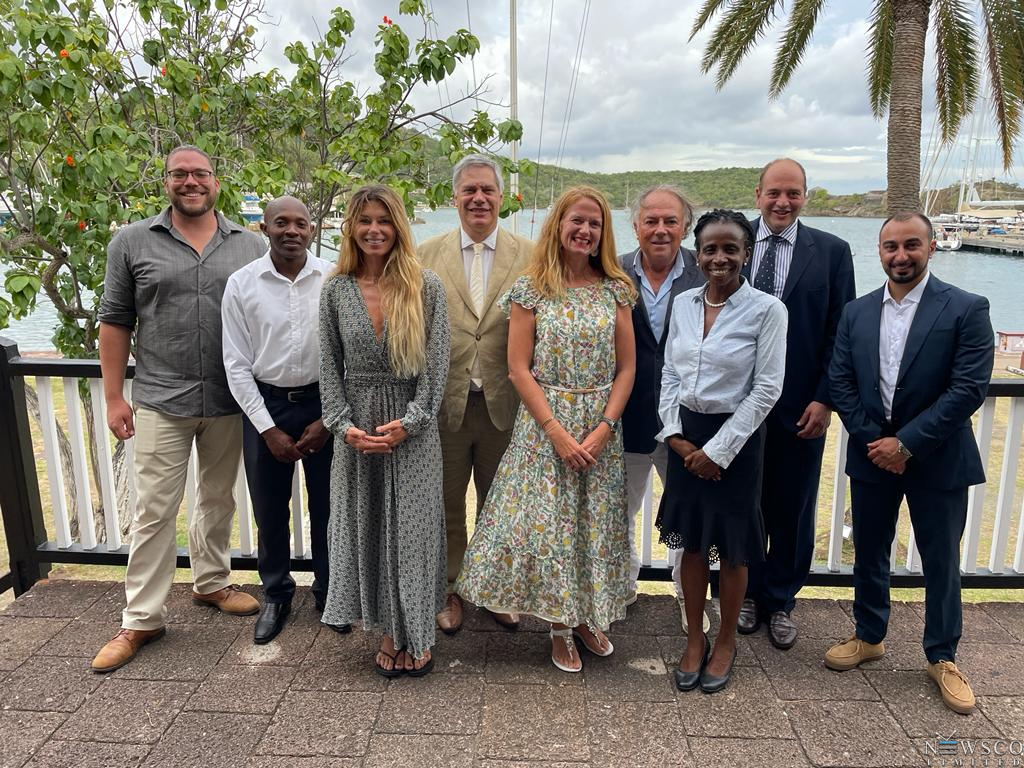A delegation from the Italian Government has concluded a visit to Antigua and
Barbuda during which they held discussions with the National Parks Authority on
the issue of climate change.
The delegation included Professor Peirpaolo Campostrini, Managing Director of
the Consortium for Coordination of Research Activities Concerning the Venice
Lagoon System (CORILA), the organization responsible for protecting the city of
Venice, Italy against rising sea levels, flooding, and degradation of the historic
city.
This visit was organized by the Italian Ambassador Gianni Piccato after his
repeated visits and a keen interest in the heritage management challenges faced in
Nelson’s Dockyard National Park due to sea level rise, coastal erosion, and
financial sustainability. He saw ways in which Italy could partner with Antigua
and Barbuda.
“The City of Venice has faced decades of flooding and degradation due to
saltwater intruding into its ancient buildings. With more than 50 years of
experience in developing systems to protect the city without damaging the
authenticity and integrity of the historic city, the heritage managers at the World
Heritage Site of Venice are well-positioned to lend their experience to our own
Antigua Naval Dockyard and Related Archaeological Sites UNESCO World
Heritage Site,” an NPA release indicated.
In the talks, the National Parks identified several areas where technical assistance
is needed. These are adapting to sea level rises to protect the Dockyard,
engineering solutions for coastal degradation, especially the erosion under Fort
Berkeley, and investigating the feasibility of solar tile technology.
Solar tiles are a new technology whereby photovoltaic panels are disguised as
common roofing materials like wooden shingles but can produce solar power.
Terracotta photovoltaic tiles have already been trialed by a pioneering Italian
Company, Dyaqua, at the UNESCO World Heritage Site of Pompeii. Not only are
they aesthetically pleasing and can pass as real materials, but the tiles are also
integrated into the roof system, making them significantly more hurricane resistant
than traditional solar panels. Dyaqua has already committed to prototyping designs
for the Dockyard’s wallaba shingles.
Minister responsible for the National Parks, E.P. Chet Greene hailed this
collaboration noting, “We are putting Antigua and Barbuda and our heritage sites
on the international map where serious professionals are asking to collaborate with
our institutions like the National Park. The technology and learning opportunities
piloted here can be expanded to the rest of the country and region, with Antigua
and Barbuda leading the way in sustainable climate adaptation sympathetic to our
heritage sites.”
The meeting at the National Parks concluded with an agreement to establish a
long-term Memorandum of Agreement between the National Parks and CORILA.
This MOA will include technical support but also offer opportunities for Antiguans
and Barbudans to gain experience and qualifications in coastal and hydro-
engineering, heritage management, and conservation.


